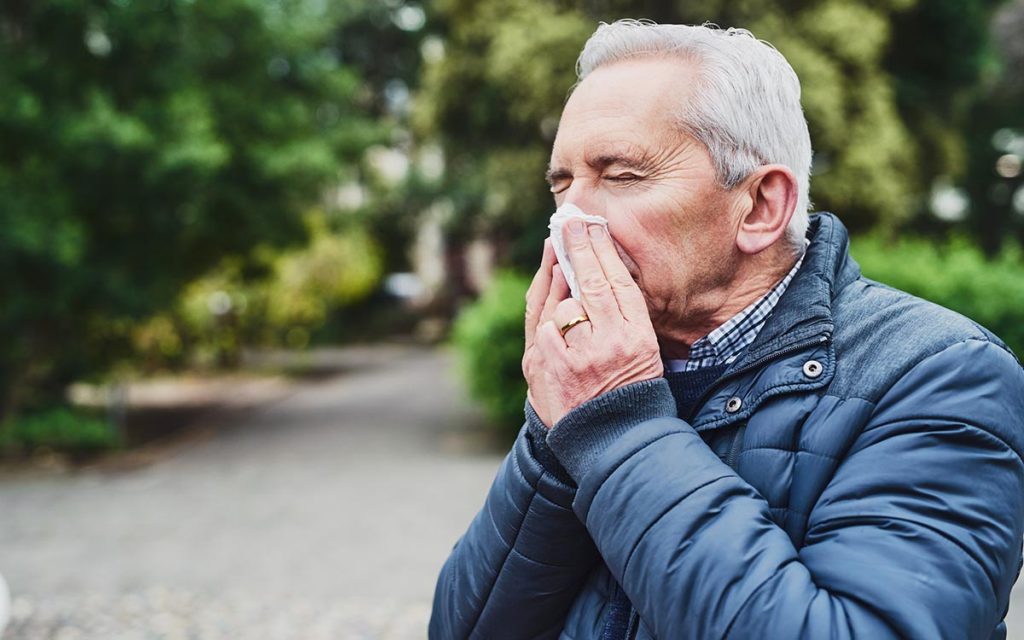You noticed it first in yoga class. You put your head down during your first set of sun salutations and started feeling dizzy. Later that day, you noticed that everyone sounded sort of far away like they were talking to you from another room. A few hours after that, you realize that your ears are almost totally blocked. And it’s only then that the pressure in your sinuses starts to become an unbearable headache.
You have a sinus infection. And they are no fun at all.
How do sinus infections block the ears?
But wait, you say, aren’t sinus infections limited to, well, your sinuses? (Isn’t that why they call it a sinus infection?) Well, yes and no. Your sinus infections do indeed usually originate in your sinuses. Sinuses are spaces in your skull around your nose and your eyes that help out with your respiratory functions.
The sinuses, ears, nose, and throat are all connected. When a sinus infection leads to increased fluid build-up (as they inevitably do), that fluid often has no place to go except out–towards and into your ears.
This excess fluid build-up can occur in one or both ears, depending on the nature of your sinus infection. Some infections are bacterial (and can be treated with antibiotics) whereas others are viral, and must be treated with rest and self-care. The more intense your sinus infection becomes, the more “blocked” your ears may feel.
How can you unblock your ears?
A sinus infection could get pretty rough. You can experience intense headaches, unrelenting pressure, dizziness, even a runny nose. The “blockage” in your ears may not be high on your misery index, but they sure don’t help. So, here are some things you can do to help:
- Avoid very high or very low temps: High and low temperatures can play havoc with your sinuses and exacerbate all of your symptoms. If your body starts producing even more fluid, your ears are not going to have a fun time. Likewise, if everything dries out, you could find yourself dealing with painfully dry sinuses (and ears).
- Take a decongestant: Most decongestants are intended to help your body get rid of excess fluid. This can really help relieve some of the pressure on your ears. (Just don’t take decongestants for more than a few days, and if your symptoms persist you should seek help.) Always make sure you follow the product directions.
- Try a nasal spray: There are all kinds of nasal sprays out there, so choose the one that’s best for your symptoms. If you can help your nasal passages and sinuses feel a little bit healthier, that may ultimately reduce the inflammation and swelling in your ears. The reduction in inflammation, in turn, could enable your ears to properly drain.
- Drink plenty of fluids: When your body is creating excess fluid it’s (ironically) pretty easy to become dehydrated. And when that happens, you might experience dry and itchy skin (even in your nose or ears). Avoid that by ensuring you drink plenty of fluids (this helps keep your body more generally healthy, too, which is nice). Take it easy on the soda and juice and opt instead for water.
- Keep an eye on your head: One of the reasons why you might first notice some of those symptoms during yoga is because bending over can make the pressure in your sinuses worse (which, again, can also make your ears feel worse). So, ideally, you’ll keep your head upright when you have a sinus infection. You can return to yoga when your sinuses heal up.
When it comes to sinus infections and your ears, it’s really the inflammation and fluid buildup that are going to be the most significant hazards (and they exacerbate each other, so that’s fun too). Treating those symptoms will likely lead to the most potent relief.
Take care of your sinus health
Sinus infections aren’t always preventable and they aren’t always treatable. But you should definitely talk to your doctor about your sinus health, especially if you’ve had a particularly severe or long-lived infection (or you repeatedly succumb to symptoms).
Sinus infections will often interfere with your hearing–but if you have persistent issues, especially after your sinus infection has gone away, it’s worth scheduling an appointment with a hearing specialist.
Ideally, once your sinus infection has subsided, you’ll be able to return to yoga–or whatever floats your boat–with healthy vigor. So, get ready for the warrior’s pose.



